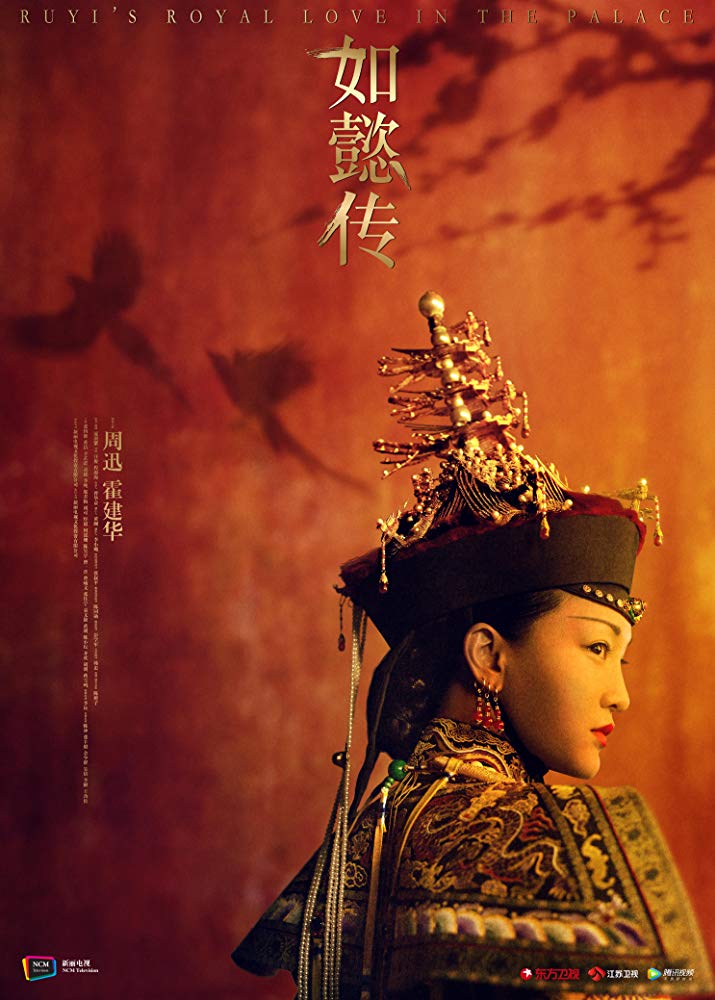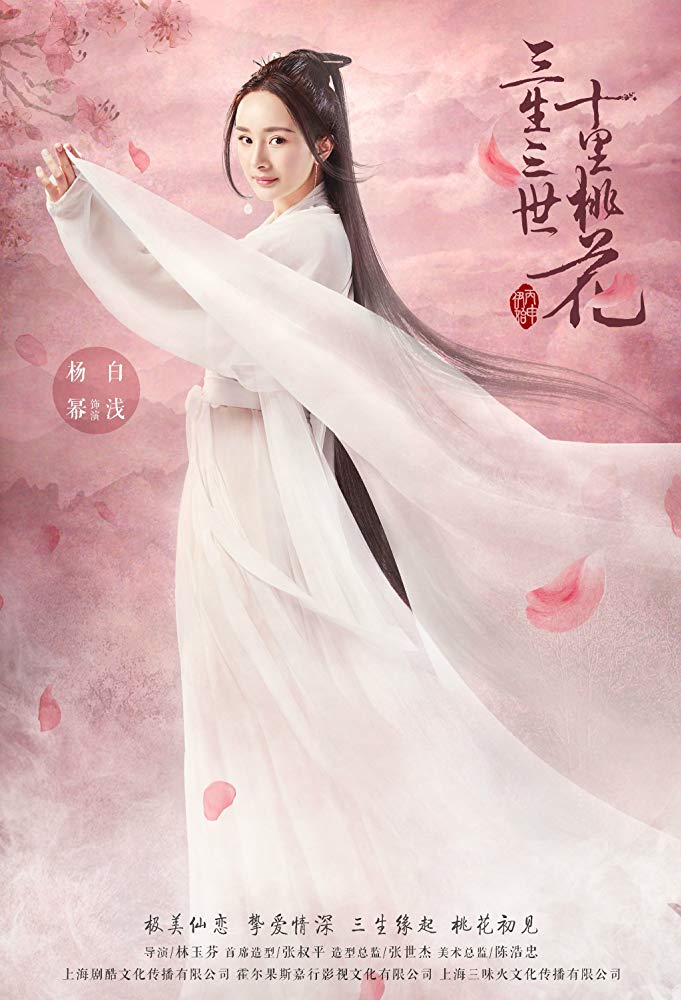Network literature is a Chinese publishing phenomenon where millions of fictions are posted and read online, just how is plagiarism avoided, if effectively at all, in network literature?

Deeply frowning, Zhan Shi had held her iPhone for hours to keep herself updated about any information of RuYi’s Royal Love in the Palace, a TV drama adapted from the synonymous fiction.
Yeas ago, RuYi’s Royal Love in the Palace were published and won a big reputation on Jinjiang Website. Yet years later, it was suddenly swirled into the scandal of plagiarism.
Jinjiang is a leading Chinese network literature platform, where a huge online community writes and reads fictions in the interactive atmosphere. Writers generate engaging stories on network literature platforms where readers select, subscribe, and comments on updating chapters.
Network literature, serving a half of total Chinese net citizens now, has defined a new way of literary creation and appreciation. Containing a wide range of contents, such as Fantasy, Romance, Conspiracy, and so on, network literature sells a brand of pop culture. Then TV industries see the potential of this literature to make money.
The trend of TV adaptations of network fictions accidentally exposed a tricky setback of network literature-plagiarism.
And the shining casting, big production budget, and wide fan base of RuYi’s Royal Love in the Palace had just pushed the battle against plagiarism to climax.

“I was worried that the release of RuYi’s Royal Love in the Palace would be suspended due to expanding furies on social media,” says Zhan Shi, a loyal fan of this fiction. “I had been expecting to see it on TV since I first read this novel.”
On 10 August 2018, days before the release date of TV drama RuYi’s Royal Love in the Palace, Feiwo Sicun, a famous network writer posted an article on social media platform, accusing this fiction of plagiarising many of her pieces.
“What an awkward coincidence of language uses!” She wrote in an ironic tone, with pictures of notes on RuYi’s Royal Love in the Palace. “Go ahead reading it, you will find more ‘surprises’.”
Then, BOOM – the public’s emotion were fueled. Hundreds of thousands of posts tagged as boycotting plagiarist RuYi’s Royal Love in the Palace came up on Weibo, one of the biggest Chinese social media platforms, within hours.
Similar with RuYi’s Royal Love in the Palace but much luckier is another TV drama named Three Lives Three Worlds, Ten Miles of Peach Blossoms, which ranked second on viewership ratings of all TV series across channels in 2017.

Three Lives Three Worlds, Ten Miles of Peach Blossoms raised the hot wave of TV adaptations of Fantasy Romance online novels. Photo from IMDb.
Triggered by the originality crisis of RuYi’s Royal Love in the Palace,
Three Lives Three Worlds, Ten Miles of Peach Blossoms was accused of plagiarising Debt of Peach Blossoms, an online fiction written by Dafeng Guaguo in 2005. Hereafter, more and more popular network fictions were spotted for plagiarism on social media, like a plague outbreak.
Smelling a sense of hope, network writers shout out loudly to defend their intellectual properties.
It is good to see that plagiarism finally gains a proper public attention. Shame on who make their own profits by stealing others’ labour fruits.
Huanchu, a network writer with three fictions published online.
Unfortunately, readers don’t seem to show a matching determination in fighting against plagiarism in network literature.
“I felt awkward and ambivalent,” says Zhan Shi, on the scandal of RuYi’s Royal Love in the Palace. “Deep inside, I know plagiarising is bad. But I poured too much emotion in it to take the cruel truth. I still wanted to see the series on TV, even if knowing it is not right to think of.”
Plagiarism doesn’t matter to television fans as well, as they care more about the visual storytelling on TV than where the story come from. “For older generations who don’t know much about network literature and whose main entertainment is television” , “the dazzling casts, famous director, and excellent costume designing” all together are very irresistible, as Zhan Shi observes.
The double standards held by online readers and TV audiences deeply disappoint network writers who show a great concern about the security of their works.
“I’m happy to see people really talking about this issue, but more importantly, I hope those who buy these pirate fictions could stop and make the change happen,” says Huanchu.
Yet the change doesn’t seem easy to arrive, as many obstacles cluster on its way.
“Like a question on many readers’ minds: why would I buy any chapters from you, if I could literally read for free?” Huanchu describes a common attitude shared buy readers. “Some people think, what does it matter whether is this fiction plagiarising or not, if it is appealing enough?”
A frustrating fact for online writers is that, for many readers, the excitement from reading experiences is more important than the originality.
Some readers don’t mind at all. Crazy fans usually don’t care if the stories are copied; everything is fine as long as they are pleased by the stories.
Wuxin, an experienced reader of network literature
Plagiarism is a chronic disease of literature, but network literature, throughout its growth, is believed to be born with a poor resistance to this infection.
“Plagiarism goes beyond online novels,” says Hao Li, a literary critic as well as a professor in literature study. “But network literature could be one of the worst hit areas right now.”
Comparing to traditional literature, network literature is more accessible and ready for readers to grab and go.
“There is usually no professional individuals or institutions checking the standard of work, and of course no one checking whether the work is involved in plagiarism or not,” says Huiwen Zhang, a traditional literature writer. “In traditional literary system, every piece undergoes a careful scrutiny before it enters the market.”
To satisfy the hungry market, network literature has to be fast at every step. So it is the business model of network literature where the power of the market performs actively that breeds plagiarism.
“Network literature is one of the few cultural means to ‘get rich’ quickly,” says Hao Li. “The strong attraction of wealth and a lack of self-regulation” should be blamed for the flooding plagiarism in network literature.
For a long while, network literature has been criticised for writer’s incapability of generating a personalised style. Network writers constantly confine themselves within a circle of certain subject matters, such as Fantasy, Palace-fighting, Tomb-raiding, Conspiracy, and Romance. Although new contents emerge in between, the so-called new ones are usually previous subjects wearing slightly different clothes.
“Similar story settings are quite common in network literature works,” says Wuxin who has read tens of online novels. “Once a subject becomes popular in network literature, you will see a plethora of nearly the same content coming up in a short time.”
“Blind creation” is a root of plagiarism in network literature, says Liting Zhang, an editor focusing on fictional content in print publishing. “Because it is an extremely market-oriented business, creators always jump on the bandwagon of whatever the market gives reactions.”
The sensitivity to market is an internal limitation of network literature. Guided by a creation norm, online writers are trapped in a risk of copying others’ descriptions and plots unconsciously. Another danger is hidden behind the fast treadmill online writer runs.
“I write at least 6,000-8,000 words per day,” says Huanchu. “You feel more pressures under the high demand of outputs.” For her biggest daily output of 32,000 words, she sat in front of her laptop writing from 8AM to 11PM. Creating under the tight mental string for 15 hours, no one can promise a pure originality.
“There is a saying among network literature communities: nine of ten online writers come to the top by plagiarising,” says Wuxin. Readers have gotten used to this because it is difficult to distinguish plagiarism in network literature.
“Twin stories can definitely be defined as plagiarism,” says Wuxin. “But the thing is, it is really difficult to judge if a fiction is plagiarising or learning from another fiction. I can never tell for sure whether similar story settings should be counted as plagiarism or not.”
It is supposed to be authority’s duty to make the judgment, but legislators are failing network writers as well.
It is a long way to go to strengthen our currently weak copyright law and regulation.
Hao Li, an expert in Chinese literature
Under the unsystematic management, many online novels, such as
Three Lives Three Worlds, Ten Miles of Peach Blossoms, have gotten away with plagiarism. And the involvement of TV industries has just made it impossible to affix responsibilities.
The TV drama Ruyi’s Royal Love in the Palace was finally released on 20 August 2018, in the midst of vituperation and applause. It has been more than a year after the upheaval, yet still no authoritative conviction, confession, or absolution come as expected. Money flows into network literature everlastingly, however plagiarism makes trouble.
But “It is not the best solution to pass the buck to the law,” Hao adds. “The society still needs to establish an appropriate moral mechanism and credibility mechanism, which is also a long way to go.”


